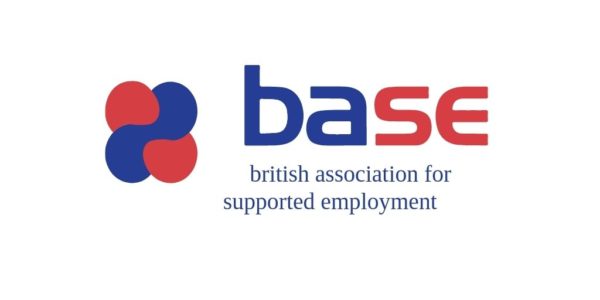Disability Confidence starts with intent: helping employers to recognise, recruit and retain diverse talent through the supported employment model.
Despite there being just under 20,000 employers signed up to central Government’s Disability Confident Scheme, the disability employment gap continues to widen. Whilst blind people, or people with learning disabilities or Autism are some of the most excluded groups, we recognise that the picture is even more bleak for young disabled people.
BASE and its members are working to reduce the disability employment gap, by providing practical support and guidance to Employers and BASE recently hosted its first ever face-to-face ‘Disability Confident in Action Business Summit’. Sponsored by Microsoft & aimed at employers who are committed to building truly inclusive workplaces, the event provided a safe space for over 90 employers to hear from expert speakers, share their experience and gain practical tips from other Disability Confident Leaders.
Themes that emerged at the Business Summit, came as no surprise. Employers feel fearful in the disability inclusion space: they’re worried about using the wrong language, unsure what is ‘reasonable’ and they don’t realise what is possible. We know that Employers want to do the right thing, they understand the ‘why’ but don’t know ‘how’ to make a start.
Small steps to start your disability inclusion journey:
- Language: Understanding where language takes us, sounds simple but can demonstrate true intent. For example, switching the focus in your in-house communications from declaring/disclosing a disability to sharing their disability, can have an amazing difference to workplace culture. The terms ‘disclosure’ and ‘declaring’ can have negative implications for the disabled community.
- Workplace adjustments: the legal definition of “reasonable adjustments” has had some unintended consequences, building fear that disabled and neurodivergent people routinely ask for things that are not reasonable. In fact, the average cost of a workplace adjustment is £75 and many of them are completely free, they just require doing things a different way. Make sure you have a clear adjustments process, where managers don’t become the gatekeepers, and they have the support needed to make good decisions.
- Disabled superpower: It’s wonderful to see disabled and neurodivergent people becoming empowered to own and celebrate their strengths, however we need to be mindful of seeing disabled people only through their difference. Employers should be conscious of creating of building a narrative around disability inclusion, that places an expectation that disabled people need to be more than, to flourish. Make sure there is room for disabled and neurodivergent people to be humans, with strengths and weaknesses the same as the rest of an organisation.
- Inclusion is an Intentional Act: Disability inclusion should be everyone’s business, but it does require a strategic buy–in. You will need a team or a role within your organisation, that can anchor your commitment to inclusion. Whilst there should be opportunities and energy for all staff to buy into the journey, who could be the executive sponsor in your organisation?
Disability inclusion has been largely led by SME’s, through partnerships with local Supported Employment services to build inclusive recruitment, that makes both business sense and changes lives within the communities they serve. Nonetheless we are increasingly seeing more of the large corporates building the Supported Employment values into their workforce planning, companies such as Amazon, Microsoft, CCEP, Hilton Hotels, Nando’s, are leading the way and are keen to support other employers looking to build their own offer.
So, my call to action for all employers is ; Lean on Us!
Whatever level of Disability Confident your organisation is at, we can help you to access a whole eco-system of largely, free support from organisations who have the tools, knowledge and experience in disability inclusion. Utilise this resource-rich community and your organisation can be confident that when you are building a recruitment strategy that it addresses the multiple barriers that our young people face when looking for work. A recruitment strategy that anticipates barriers and overcomes them, especially for disabled and neurodivergent people but also removes barriers for those young people who are care-leavers, have mental health issues or are from challenging socio-economic backgrounds.
We have the tools and the knowledge through the Supported Employment model and combined with the Disability Confident framework, can overcome those barriers and turn intent into action.
BASE are proud to partner with Youth Employment UK, as together we achieve our mission that everyone who wants to work should be able to, while ensuring employers are valued as an equal partner.





